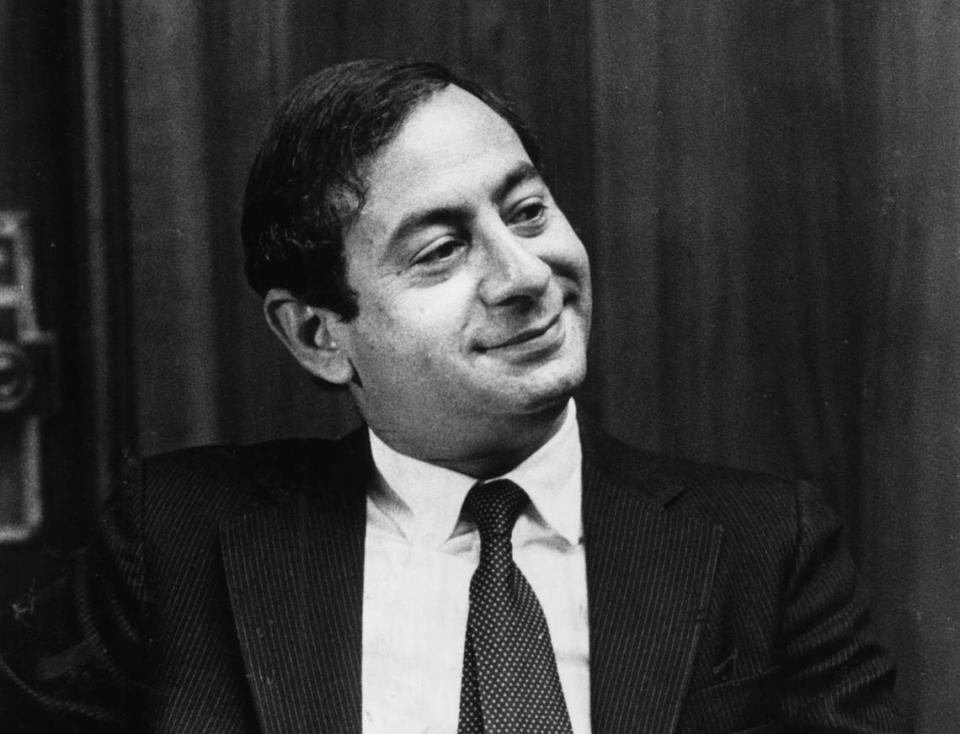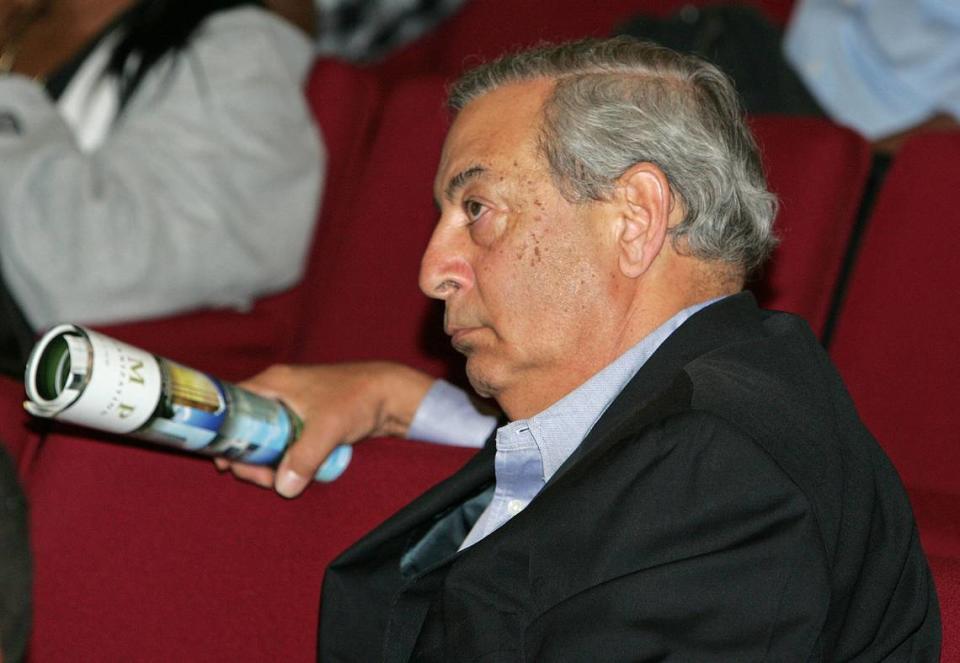Miami banker Raul Masvidal, once one of the city’s most powerful Cuban Americans, dies at 82
Developer Raul Masvidal, a Miami elder statesman with the kind of name recognition built from years of banking, philanthropy and associations with governors and senators to fuel a candidacy for Miami mayor, has died.
According to his colleagues at the Orange Bowl Committee, where Masvidal was a lifetime member, Masvidal died on Tuesday. A cause of death was not given.
He was 82.

Masvidal’s Miami story could serve as a 10-part streamer miniseries epic.
A “riches to rags, back to riches story,” he told a Miami Herald reporter in 1982 during an interview that lasted more than three hours. This, during a workday that started at 5:30 a.m. and ended at 1 a.m. the next day. In between, Masvidal held meetings with some of South Florida’s A-listers that included at the time Miami Dolphins co-founder Joe Robbie, Miami-Dade County Manager Merrett Stierheim and Jorge Mas Canosa, with whom Masvidal co-founded a Washington-based lobby group, the Cuban American National Foundation, in 1981. He reportedly supported both Republican and Democratic candidates, including Ronald Reagan for the presidency and Sen. Bob Graham, who was Florida’s governor.
Masvidal had stamina.
In the ‘70s, he ran Royal Trust Bank in Miami. He later bought Biscayne Bank. That move “began his local ascent, becoming arguably Miami’s most influential Cuban American at one time,” the Herald reported.
“I loved Raul,” Stierheim said Sunday. “He was a fighter, a self-made man, an unabashedly good friend and community leader. He cared about people and was always ready to pitch in and support causes that improve and raise those less fortunate. Most of all he tried to bring people together. His energy was contagious and he will be missed.”
For more than 30 years, Masvidal worked with more than 40 civic organizations, including the Sports Authority, arts groups including the Florida Philharmonic and Greater Miami Opera Association, the state Board of Regents, the Orange Bowl Committee and United Way. After the 1980 Mariel boatlift, he was part of a local delegation that flew to the White House demanding federal help from President Jimmy Carter.
In the early-1980s, Masvidal counted Miami Savings Bank as one of his properties and advocated loans in Miami’s inner-city Black community. He also was chairman of Biscayne Bank, which required a minimum deposit of $50,000 to open an account. That activism and reach earned Masvidal entry into the secretive Non-Group, a cadre of 38 Miami businessmen who guided the city behind the scenes. At the time, he and developer Armando Codina were the only Cuban Americans in the club that included executives from Knight-Ridder, which once was the Herald’s parent company, the Miami Dolphins, Eastern Airlines and Burdines.
Masvidal parlayed that business acumen to a run for mayor of Miami in 1985, a race in which he defeated incumbent Maurice Ferre but lost in a runoff to Xavier Suarez, who instead earned the designation of Miami’s first Cuban-American mayor.
He was also chairman of the joint Miami-Dade-Broward South Florida Sports Authority, was a part owner of a minor league version of the Miami Marlins baseball team, worked on developing Cocoplum and Bayside Marketplace, and helped get an arena built in downtown Miami on Biscayne Boulevard in the late-1990s to house the Miami Heat. The smaller, only 10-year-old neighboring Miami Arena proved inadequate to host the team.
“I think I do it because I am a very active, hyper type. I have to be doing something all the time,” Masvidal told the Herald reporter in the middle of his usual jam-packed day.
Born in Havana on Nov. 14, 1941, to a provincial senator father and a doctor mother, Masvidal studied in the States as a child in Connecticut and later at the University of Miami as an arts major. In 1960, a year after Fidel Castro’s revolution, his parents sent him to Miami.
During the Bay of Pigs invasion in April 1961, when Masvidal was 19, he was on a boat off the beach during the failed raid. He joined the U.S. Army shortly after during the 1962 Cuban Missile Crisis. Author Joan Didion once interviewed Masvidal about these experiences and his power in his adopted hometown for her 1987 book, “Miami.”
Masvidal weathered career setbacks, too. Banks failed. The “riches to rags, back to riches” ride teetered back to rags when the millionaire found himself $2 million in debt by 1990. The nadir came in 2007 when he was accused of fraud and theft of $150,000 in public money to buy a watermelon statue for personal use — charges he long maintained were not true.
In 2014, a Miami-Dade judge dismissed the fraud and theft charges against Masvidal.
Services
Services for Raul Masvidal begin with a viewing scheduled from 5 to 9 p.m. Wednesday, May 29, at Ferdinand Funeral Homes and Crematory, 2546 SW Eighth St., Miami. A Mass follows at 10 a.m. Thursday, May 30, at the Church of the Little Flower, 2711 Indian Mound Trail, Coral Gables.


